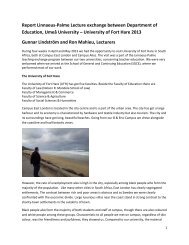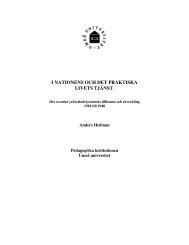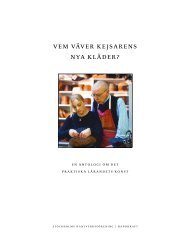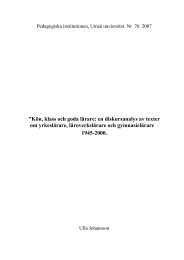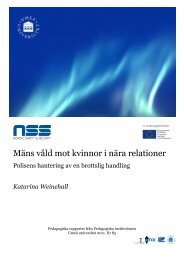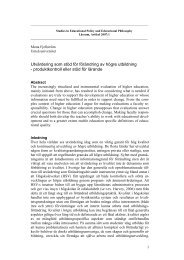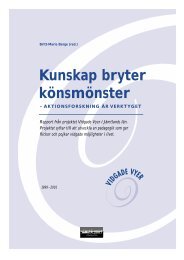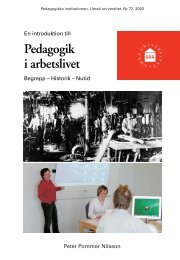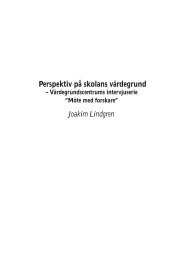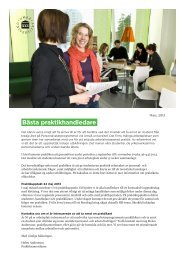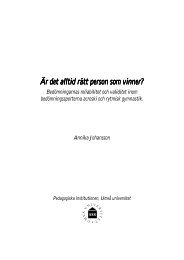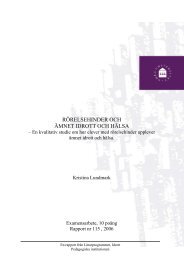IDENTITETSSKAPANDE I STUDENTFÖRENINGEN ULRIKA ... - DiVA
IDENTITETSSKAPANDE I STUDENTFÖRENINGEN ULRIKA ... - DiVA
IDENTITETSSKAPANDE I STUDENTFÖRENINGEN ULRIKA ... - DiVA
You also want an ePaper? Increase the reach of your titles
YUMPU automatically turns print PDFs into web optimized ePapers that Google loves.
S U M M A R Y<br />
positioning oneself in relation to and distinguishing oneself from other groups.<br />
The others represent an identity that is deviant according to the discourse, and<br />
they are thereby excluded from the discourse and deprived of the right to speak.<br />
The ideal identity is thus constructed in accordance with the order of the discourse,<br />
but in a concrete context it may be expressed fragmentarily and contradictorily.<br />
Therefore it can also be reconstructed by the people who activate it in<br />
various ways.<br />
I have also received theoretical inspiration from Pierre Bourdieu’s theories of<br />
symbolic capital. I regard ideal identity as embodied symbolic capital, whose<br />
value is supported by the discourse and which therefore also has a distinguishing<br />
function. The symbolic capital can exist as economic, cultural and social<br />
capital, but in a Swedish context the form of capital acquired through participation<br />
in popular movements, trade-union organisations, and the like, also<br />
stands out as valuable. One research question therefore deals with whether<br />
working in a students’ society also yields an organisational capital, and what<br />
content it might have in such a case.<br />
I also assume that there may different discourses competing for preferential<br />
right of interpretation. For this reason contradictory images of the ideal human<br />
being may exist simultaneously, which may give rise to so-called ideological<br />
dilemmas. Ideological dilemmas may arise when a person faces difficulties in<br />
representing the ideal identity. By identifying ideological dilemmas, it may be<br />
possible for the researcher to understand both how the ideal identity is constructed<br />
and how its meanings can be re-negotiated in the individuals’ identity<br />
construction.<br />
As already pointed out, my research questions deal with gender and class in<br />
higher education. Expressed in discourse theoretical terms, I am interested in<br />
the interplay of discourses about gender and class and how they manifest themselves<br />
in students’ identity construction. In this respect I have also been guided<br />
by theories on intersectionality.<br />
Aim and Questions of the Thesis<br />
The overall aim is to describe and understand the identity work taking place in<br />
some different students’ societies. Empirically the following questions will be<br />
studied:<br />
What discourses about students do the society members activate when they<br />
construct the ideal identity?<br />
167



